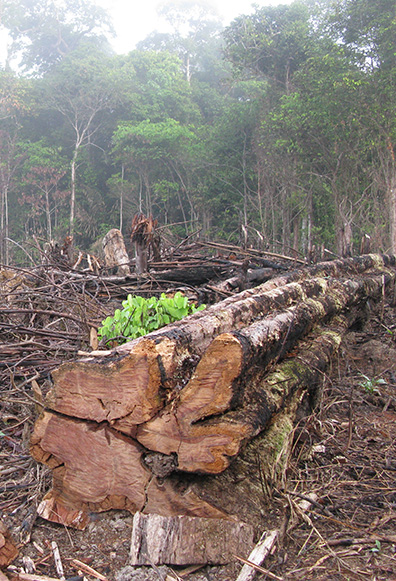Countries:
Brazil
Status:
Completed
Sector:
Finance
Shifting corporate and financial institutions’ (FIs) capital and investments towards a greener recovery by integrating climate and deforestation risks into governance opportunities and financial decisions.
The project aimed to catalyse systemic, transformational change in the Brazilian financial sector by building knowledge and leveraging action across listed companies, financial institutions, and policy/regulatory authorities. Resulting in reduced pressure on forests and lower greenhouse gas (GHG) emissions from the sector.
It pursued three key objectives:
“All content provided from CDP helps the institution to understand how they can better allocate their investments and to understand better the risks embedded in their asset allocation.”
Brazilprev
“The content from the Stewardship webinar was of great relevance and the institution foresees a high probability this information can be used in our daily routine. Also, CDP supports the institution with information and requirements to join global commitments such as Net Zero Asset Managers Alliance.”
Neo Investimentos

Brazil is Latin America’s largest economy, and home to immense natural resources, including over 40% of the world’s tropical forests. However, deforestation is one of Brazil’s largest contributors to GHG emissions.
Disclosure of climate- and deforestation-related financial risks could help shift investments away from high-emitting and environmentally damaging activities in the forestry sector, while contributing to a green recovery post-pandemic. However, there is currently limited climate risk integration in financial decision-making, and inconsistent use of disclosure practices due to a lack of capacity and awareness across the financial sector:
more corporates responded to CDP’s climate change questionnaire in 2021
more FIs responded to CDP’s climate change questionnaire in 2021
more companies reported on GHG emissions reduction targets in 2021
more corporates reported on traceability systems in 2021
The project contributed to capacity and knowledge building about climate-related financial risk disclosures in the Brazilian financial sector, as recommended by the TCFD.
It focused on three key activities:
The project made a tangible impact on the level of climate disclosure knowledge and capacity within the participating organisations – leading to an increase in the number of corporates and FIs reporting from 2020 to 2021, and an improvement in the scores achieved. In the same year, data showed a 28% increase in the number of companies implementing traceability systems – a key mechanism to reduce deforestation by helping companies track the origin of commodities and assess the relative deforestation risk.
The new CDP’s strategy included a commitment for the first time to expand from an exclusively environmental focus to social and governance metrics in 2021
CDP staff have increased awareness of GESI issues and the value of mainstreaming GESI
The GESI lessons learned through UK PACT and the improved staff awareness created positive effects on engagements with stakeholders
Building on CDP’s internal JEDIA initiative created wide GESI support within the organisation
The project’s approach to Gender Equality and Social Inclusion (GESI) was built on and complemented by CDP North America’s parallel initiative JEDIA (Justice, Equity, Diversity, Inclusion, and Accessibility). While JEDIA’s work focused on internal organisational practices and policies, the UK PACT project encouraged them to think more broadly about integrating GESI across their programmes, activities and interactions with project stakeholders.
The project summarised a suite of potential GESI actions in four categories:
Since CDP did not have a standardised, contextualised approach to GESI, the UK PACT support offered the opportunity to analyse and reflect on CDP’s GESI approach at a programmatic level. This work’s multiplier effect is expected to lead to a standardised approach to mainstream GESI in CDP’s work with the more than 13,000 companies globally in the future.

While the project contributed to enhancing awareness and uptake of climate-risk disclosure and reporting, there are still significant challenges that will need to be overcome. The number of companies in Brazil and across Latin America that report emissions is still relatively low and/or data is of poor quality. Building on the project’s results, these issues need to be addressed further to enable FIs to more accurately assess their lending and investment portfolios’ climate impact.
The project also demonstrated a successful approach to mainstreaming GESI across the organisation, by upskilling frontline staff to act as true agents of change and enable GESI conversations across projects and stakeholders. This could potentially generate a multiplier effect in the countries of operations and, more broadly, generate change across other regions.
Guidance and factsheet for cities & states in Brazil on the impact of TCFD recommendation and requirements for TCFD-aligned transparency
View PDFInsight report into progress of Brazilian corporates and FIs towards climate and forest disclosure and action based on 2021 disclosure data
View PDFUK PACT (Partnering for Accelerated Climate Transitions) is a unique capacity-building programme. Jointly governed and funded by the UK Government’s Foreign, Commonwealth and Development Office (FCDO) and the Department for Energy Security and Net Zero (DESNZ) through the UK's International Climate Finance, it works in partnership with countries with high emissions reduction potential to support them to implement and increase their ambitions for tackling climate change.
© Copyright 2025 UK PACT Privacy Notice Cookie Policy